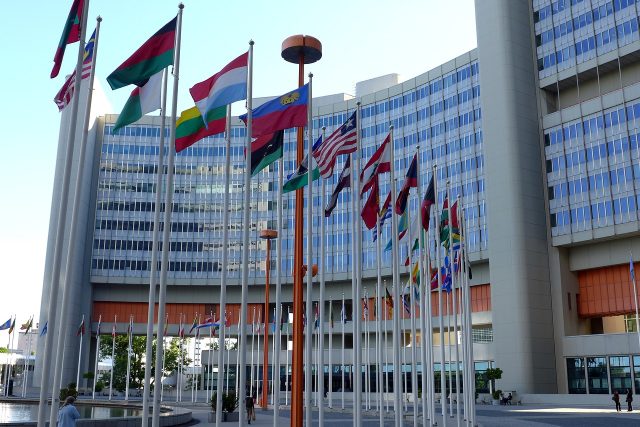The Digital Currency Monetary Authority (DCMA) announces the official launch of an international central bank digital currency (CBDC).
The DCMA, a membership organisation of sovereign states, central banks, commercial and retail banks, and other financial institutions, confirmed its intention to launch an international CBDC at the International Monetary Fund (IMF) Spring Meetings 2023.
The introduction of this offering is poised to strengthen the monetary sovereignty of participating central banks while complying with the recent cryptocurrency assets policy recommendations proposed by the IMF.
Universal Monetary Unit
Universal Monetary Unit (UMU), symbolised as ANSI character, Ü, will function legally as a money commodity, capable of transacting in any legal tender settlement currency while functioning like a CBDC to enforce banking regulations and to protect the financial integrity of the international banking system.
With this, banks will be able to attach SWIFT codes and bank accounts to a corresponding UMU digital currency wallet and transaction SWIFT-like cross-border payments over digital currency rails. This completely bypasses the correspondent banking system at best-priced wholesale FX rates and with an instantaneous real-time settlement.

In an IMF interview with Tobias Adrian, a financial counsellor at the IMF, he states “Cross-border payments can be slow, expensive and risky. In today’s world of payments, counterparties in different jurisdictions rely on costly trusted relationships to offset the lack of a common settlement asset together with common rules and governance.
“But imagine if a multilateral platform existed that could improve cross-border payments—at the same time transforming foreign exchange transactions, risk sharing, and more generally, financial contracting,” Adrian concludes.
A new turn for cross-border payments
According to Darrell Hubbard, the executive director of the DCMA, and the chief architect of UMU, “This vision expressed by the IMF is the exact solution the DCMA is delivering to central banks worldwide.”
Adopting a global localisation public monetary system architecture, UMU can be configured to operate according to the central banking regulations of each participating jurisdiction.
George Walker, a partner at Practus LLP, specialising in international law, facilitated meetings between the DMCA and the IMF, states “Although the IMF has not officially endorsed Universal Monetary Unit, in reviewing the DCMA’s whitepaper and in weekly team discussions, the IMF has yet to state any objections to UMU’s FX premium rates and its monetary sovereignty approach.”
According to Hubbard, “UMU is not attempting to disrupt the international monetary system. If fact, it strengthens it by helping the IMF achieve its stated mandate to provide economic and financial stability to its member states. UMU is a game-changer in how cross-border payments are transacted and mitigates against seasonal and systemic local currency depreciation.”
Safeguarded by legislation
Model law legislation has now been drafted for the issuance of UMU in collaboration with several sovereign states.
The proposed legislation underlines that UMU should not be enacted as a legal tender for negotiating domestic prices or international trade agreements. Instead, the legislation proposes UMU to be enacted as a complementary money commodity for the store of value, mitigating against potential seasonal and systemic local currency depreciation, and tendered as a payment currency at the time of settlement.
Merchants and trading partners could accept UMU for the equivalent market value for their goods and services priced in any national legal tender. UMU has premium exchange rates built into its wallet and can convert any settlement currency amount to the equivalent UMU amount.
In addition, UMU seeks to support central banking and regulated financial institutions with features including a trusted consensus protocol, staked proof of trust (SPOT) protocol and a multi-dimensional DLT (mDLT) capable of supporting any asset or liability ledger enabling full-service digital banking and international trade payments.
The DCMA introduces UMU as ‘crypto 2.0’ because it innovates a new wave of cryptographic technologies for realizing a digital currency public monetary system with a widespread adoption framework encompassing use cases for all constituencies in a global economy.



The Most Read
Сryptocurrencies
Bitcoin and Altcoins Trading Near Make-or-Break Levels
Financial crimes
Thieves targeted crypto execs and threatened their families in wide-ranging scheme
Financial crimes
Visa Warning: Hackers Ramp Up Card Stealing Attacks At Gas Stations
News
Capitalism is having an identity crisis – but it is still the best system
Uncategorized
The 73-year-old Vietnamese refugee is responsible for bringing Sriracha to American consumers
Uncategorized
Electric Truckmaker Rivian, Backed By Amazon, Ford, Raises Whopping $1.3 Billion